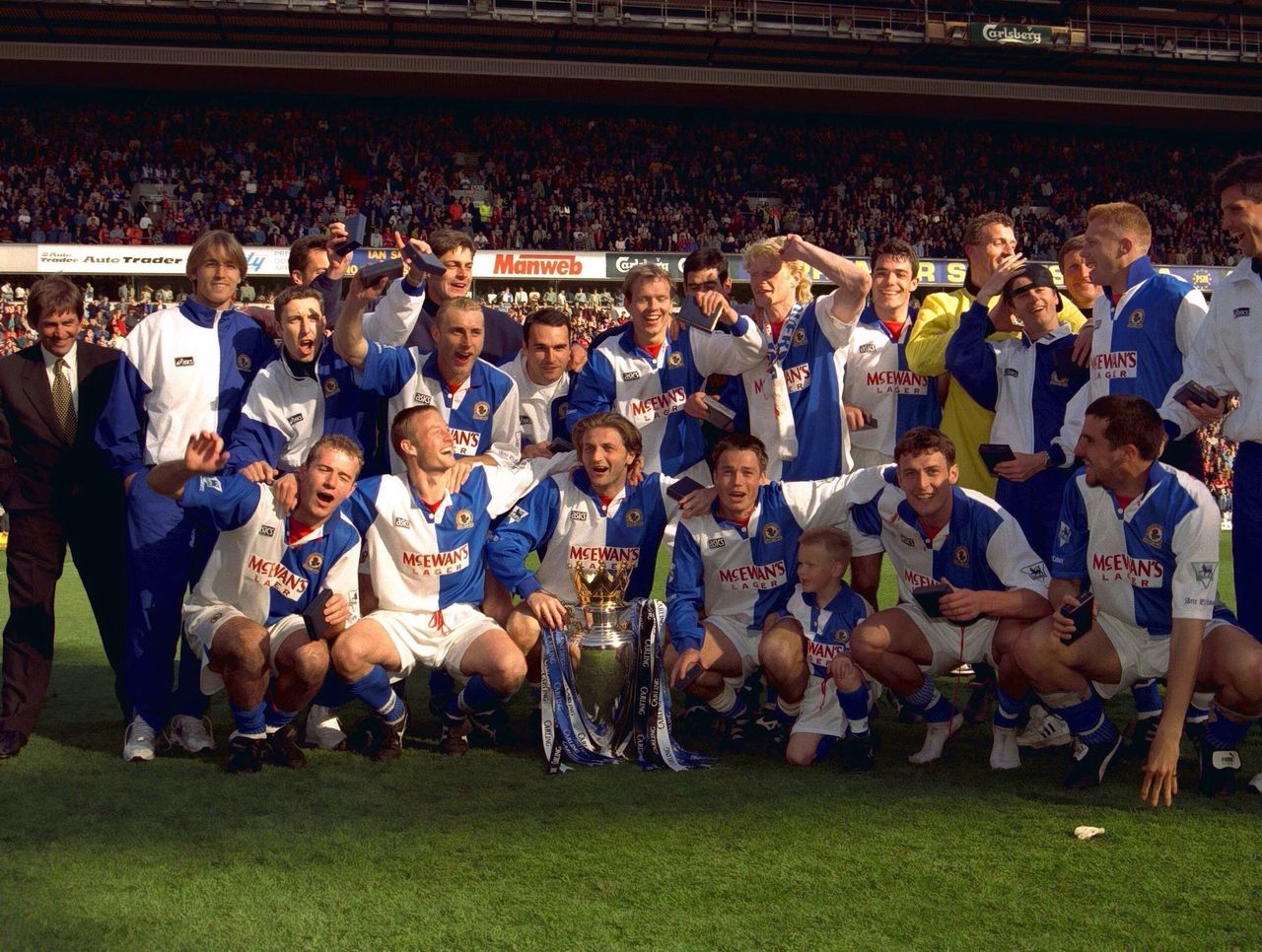The domino effect: Blackburn's 1994-95 conquest and Leicester City's fairy tale
When Blackburn Rovers conquered the Premier League in 1994-95 and won its first top-division league title in 81 years, the triumph was the culmination of factors dating back to 1981, when English football adopted the three-points-for-a-win system. Curiously, if clubs continued to be awarded two points for a victory, as was the case in English football for the greater part of the 20th century, Blackburn is the only club whose name would be erased from the Premier League trophy.
The rule change, of course, did nothing more than lay part of the groundwork for Blackburn's success in 1994-95. Responsible for building the heroic squad that season was Jack Walker, a Blackburn-born steel magnate. He was once estimated to be the 21st richest man in Great Britain and injected the club with the fortunes made by his family firm, which was sold to British Steel for £360 million in 1990.
It's because of Walker that shouts of "bought the league" echoed around the United Kingdom when Blackburn flipped the Premier League on its head. It was with his money that the team twice broke the British transfer record, signing Alan Shearer from Southampton for a reported £3.3 million in 1992 and then signing Chris Sutton from Norwich City for a reported £5 million in 1994. His generosity also saw Tim Flowers move to Ewood Park in a record deal for a goalkeeper.
Aside from Shearer, Sutton, and Flowers, however, Blackburn's squad was built with players who commanded modest transfer fees and modest salaries. The idea that the club won the Premier League solely because of Walker's money is ignorant, completely neglecting not only its cheap acquisitions of Graeme Le Soux, Colin Hendry, and Tim Sherwood - all of whom were pivotal figures under manager Kenny Dalglish, but its wise spending.
Jimmy Pierce of When Saturday Comes elaborates:
Based on calculations of the reported transfer fees for the roughly first choice starting XIs of both clubs in the 1994-95 season (taking into account injuries and long-term suspension), Rovers spent far less than the incumbent champions, Manchester United. Peter Schmeichel, Denis Irwin, Steve Bruce, Gary Pallister, Andrei Kanchelskis, Paul Ince, Roy Keane, Ryan Giggs, Brian McClair, Mark Hughes and Andy Cole cost £19.33m.
Whereas Flowers, Henning Berg, Hendry, Ian Pearce, Le Saux, Stuart Ripley, Mark Atkins, Sherwood, Jason Wilcox, Shearer, and Sutton set Rovers back a comparatively low £14.7m.
Beyond the three-points-for-a-win system and a money-bags owner who made wise investments, Blackburn's achievement can also be put down to a season in which the larger clubs didn't seize the day. Dalglish's side suffered seven defeats during the campaign, more than any other Premier League champion. Three of those losses came during its final five fixtures, including a 2-1 loss at Liverpool on the season's final matchday. If United hadn't drawn West Ham United 1-1 on the same day, the Red Devils would have extended Rovers' title drought.

This is, simply put, football. Factors conspire, over the course of days, months, and years, that can be beneficial to a club or detrimental to a club. Blackburn won its only Premier League title because history played out a certain way.
With Leicester City entering the 30th matchday of the Premier League season atop the standings in surreal fashion, comparisons are inevitably being drawn between Blackburn's 1994-95 adventure and the Foxes' 2015-16 fairy tale. The juxtaposition is a testament to what Claudio Ranieri's side is doing in a league where money reigns supreme, and it's a fair one.
Leicester's meteoric rise is also the result of events that unfolded both long ago and recently, and have allowed the Foxes to be in a position where they can send shock waves throughout English football. It's the product of Vichai Srivaddhanaprabha - the club's billionaire owner - making a conscious business decision to buy a struggling team in 2010. It's the product of rolling the dice on a non-league player in Jamie Vardy. It's the product of a miraculous escape from the relegation zone that, at one point, even the most diehard supporters couldn't imagine. It's the product of Nigel Pearson being sacked because of "fundamental differences in perspective."

In football, there's so much focus on the present that it can be easy to forget about the sequence of events, or the domino effect, that result in stories like Blackburn's Premier League assault in 1994-95 or Leicester's shaking of the establishment.
How would history have played out if, in the legendary Championship play-off between Leicester and Watford in 2013, Anthony Knockaert had converted a 97th-minute penalty kick?
HEADLINES
- Watkins sinks Chelsea as Villa win 11th straight, keep pace in title race
- Wirtz finally scores 1st Liverpool goal in win over Wolves
- Arsenal ignore injury woes to beat Brighton, retain top spot
- Sealed with a kiss: Guardiola hails 'incredible' Cherki
- Jota's children join tributes as Liverpool, Wolves pay respects